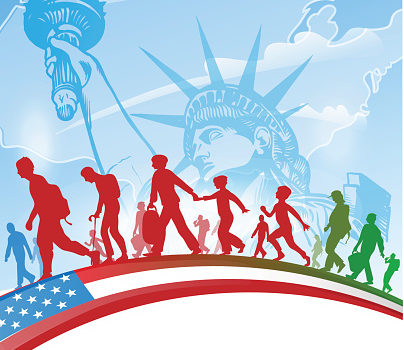
Navigating Cultural Crossroads: The Experience of First-Generation Immigrants
The journey of first-generation immigrants is often marked by hope and aspiration—but it also involves navigating the complex realities of cultural differences, particularly the clash between collectivism and individualism. As these individuals plant their roots in a new country, they bring with them the values, traditions, and norms of their homeland, which can sometimes starkly contrast with those of their new environment. This cultural tension not only shapes their identities but also influences their relationships with family, peers, and society at large.
Understanding the Concepts: Collectivism vs. Individualism
At its core, collectivism emphasizes the importance of the group—whether that be family, community, or society—over the individual. Many cultures around the world, especially in Asia, Africa, and Latin America, prioritize communal values and interdependence, where success is viewed in the context of collective achievements. In collectivist societies, harmony, loyalty, and support for one another are central tenets, guiding behaviors in both public and private life. In contrast, individualism, which is more prevalent in Western societies, celebrates personal freedom, self-determination, and individual rights. Here, personal interests often take precedence over group goals, fostering a sense of independence where individuals are encouraged to pursue their dreams, express their opinions, and carve out their own paths without seeking constant consensus.
The Immigrant Experience: Straddling Two Worlds
For first-generation immigrants, the intersection of these two cultural frameworks can be both enriching and challenging. Many migrants find themselves caught between the expectations of their families, rooted in collectivist values, and the encouragement of individual expression present in their new communities.
Family Expectations vs. Personal Aspirations
Consider the story of Maya, a young woman who immigrated from India to the United States. In her family, education is highly valued, with an emphasis on contributing to the family’s honor and success. However, once in the U.S., Maya discovers a system that encourages her to explore her own interests and ambitions. While she longs to pursue a career in the arts, her family hopes she will become a doctor or engineer, fields that guarantee stability and prestige. This dichotomy creates tension as Maya grapples with the desire to honor her family's wishes while also striving for personal fulfillment. Such experiences are common among first-generation immigrants who often feel the weight of familial duty alongside their pursuit of individuality.
Community Engagement vs. Personal Autonomy
The challenge of balancing community expectations with individual aspirations extends beyond family dynamics. In many cases, first-generation immigrants find themselves negotiating their roles within broader community settings. They may participate in culturally-specific events and traditions, which foster a sense of belonging but can also reinforce the burdens of collectivism. For example, Amir, a Syrian refugee, feels a strong commitment to contribute to his local mosque and help other newcomers acclimate to life in the U.S. However, he often struggles with his desire for personal pursuits, such as pursuing his own career goals in business. This duality can lead to feelings of guilt when prioritizing personal ambitions over community obligations—something many immigrants face.
The Transformative Power of Cultural Fusion
Despite these challenges, the experiences of first-generation immigrants also illustrate the potential for cultural fusion. As they carve out their identities in a new land, many find ways to blend the values of both collectivism and individualism. Through this fusion, individuals like Maya and Amir can create a worldview that honors their heritage while allowing for self-expression and personal growth. The result can be a richer, more nuanced perspective that combines the strength of community with the empowerment of individuality. Communities, too, can benefit from this cultural interaction. As immigrants share their traditions and values, they contribute to a more vibrant social tapestry, fostering understanding and enriching the collective experience of all residents in their new home.
A Journey toward Understanding
The cultural clash between collectivism and individualism is a defining experience for many first-generation immigrants. However, it is also an opportunity for growth, understanding, and the forging of new identities. By respecting and valuing both individual aspirations and communal bonds, we can create a more inclusive society that celebrates the richness of diverse experiences. As we reflect on the journeys of those who have come before us and those who are still navigating this path, it becomes clear that the immigrant experience is not just about the struggle between cultures. It is about the celebration of resilience, the power of community, and the importance of finding one’s voice within the symphony of collective life.
